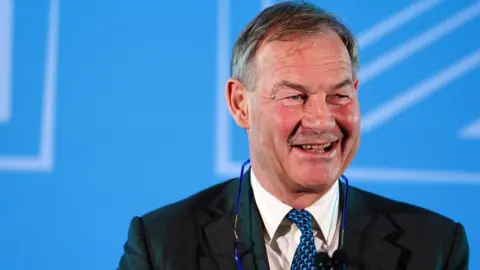**Ex-Reform MP Lowe Will Not Face Charges Over Alleged Threats**
In a significant update regarding the political landscape, Rupert Lowe, the Member of Parliament representing Great Yarmouth, will not face criminal charges in connection with allegations involving threats. This announcement was made by the Crown Prosecution Service (CPS), marking a pivotal moment for Lowe, who was once an MP for the Reform UK party.
Lowe’s political career was under scrutiny following his election as a Reform UK member in the previous year’s general election. His suspension from the party in March 2025 was precipitated by claims and allegations surrounding threats made against the party’s chairman. This context fuels the public interest in the recent decision made by the CPS.
Malcolm McHaffie, the head of the CPS, outlined the rationale behind the decision to refrain from prosecuting. He stated that the determination came after a comprehensive review of the available evidence, asserting, “Having considered a number of witness statements, we have concluded that there is insufficient evidence to provide a realistic prospect of conviction.” This remark underscores the burden of proof that must be met for legal action to proceed, emphasizing that the implications of such allegations do not always warrant formal charges.
In response to the CPS’s findings, Rupert Lowe issued a statement via X, indicating that the Metropolitan Police have also ceased their investigation into what he described as “false allegations.” He took the opportunity to accuse the Reform UK party of engaging in a “brutal smear campaign” against him. In his statement, Lowe expressed that he faced vilification and targeting for merely questioning the party’s direction and leadership. Such comments reflect ongoing tensions within the party and raise questions about internal dynamics that may have influenced his suspension and subsequent controversies.
Now sitting as an independent MP, instead of under the banner of Reform UK, Lowe did not hesitate to level harsh criticism at his former party leader, Nigel Farage, whom he branded a “coward and a viper.” This public condemnation signifies not only a rift between former allies but also highlights the depth of Lowe’s disaffection with the party’s current trajectory.
While the CPS announcement did not explicitly name Lowe, the case centers around an incident reported to have taken place at the Palace of Westminster in December 2024. McHaffie articulated that the role of the CPS is not to declare someone guilty but to assess whether charges should be brought based on a neutral and thorough examination of facts. He affirmed that the legal criteria necessary for prosecution had not been satisfied in this instance.
Moreover, McHaffie mentioned the existence of the Victim’s Right to Review (VRR) scheme, which allows victims or their families a designed process for reviewing certain CPS decisions regarding the initiation or cessation of prosecutions. This stipulation ensures that there remains a pathway for those who may feel unjustly overlooked or incorrectly treated in the justice process.
In summation, the developments surrounding Rupert Lowe and the CPS’s decision not to pursue charges reveal the complexities and challenges within political spheres, especially concerning allegations that can mar reputations and political careers. As this narrative unfolds, questions remain not only about the impact on Lowe’s future as an independent representative but also about the broader implications for Reform UK as it navigates its own internal conflicts and public perception.



